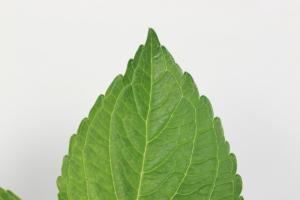Introduction
Mint plants are a common herb used in cooking and medicine. These plants are easy to grow and can be found all over the world. Mint plants are known for their strong scent, which is due to the high concentration of essential oils in their leaves. But what are mint plants good for besides their aroma? In this article, we will explore the various benefits of mint plants.
Culinary Use
One of the primary uses of mint plants is in cooking. Mint leaves are often used as a flavoring agent in a variety of dishes. Mint can be added to salads, desserts, and drinks to enhance their taste. Mint is also a common ingredient in Middle Eastern, North African, and Mediterranean cuisines. Spearmint and peppermint are the most commonly used varieties of mint in cooking.
Medicinal Properties
Mint plants have several medicinal properties that have been recognized for centuries. The plant has been used to treat various ailments like indigestion, nausea, and colds. Mint oil is a popular remedy for headaches, as it has a cooling effect and helps to relieve pain. Mint also has antibacterial properties that make it effective in treating skin infections and wounds.
Oral Health Benefits
Mint plants are beneficial for oral health due to their antibacterial properties. Chewing on mint leaves can help to freshen breath and kill bacteria in the mouth. Mint is also effective in preventing gum disease and cavities. Many toothpaste brands use mint as a key ingredient due to its effectiveness in improving oral hygiene.
Relaxation and Stress Relief
Mint plants have a calming effect on the body and mind. The scent of mint can lower stress levels and help to promote relaxation. Mint is often used in aromatherapy treatments to reduce anxiety and improve mood. Drinking mint tea is another popular way to reap the relaxation benefits of mint.
Insect Repellent
Mint plants can also be used as a natural insect repellent. The strong scent of mint is known to repel mosquitoes, flies, and other pests. This property makes mint an ideal plant to grow in your garden or use in your home to keep insects at bay. Mint oil is also commonly used in insect repellent sprays and lotions.
Conclusion
As we can see, mint plants are incredibly versatile and offer many beneficial properties. From culinary uses to medicinal properties, mint plants have been used for centuries to treat various ailments and improve overall health. Incorporating mint into our daily lives can help to improve our physical and mental well-being. So, next time you come across a mint plant, don't hesitate to reap its benefits.

 how many times do yo...
how many times do yo... how many planted tre...
how many planted tre... how many pine trees ...
how many pine trees ... how many pecan trees...
how many pecan trees... how many plants comp...
how many plants comp... how many plants can ...
how many plants can ... how many plants and ...
how many plants and ... how many pepper plan...
how many pepper plan...






























